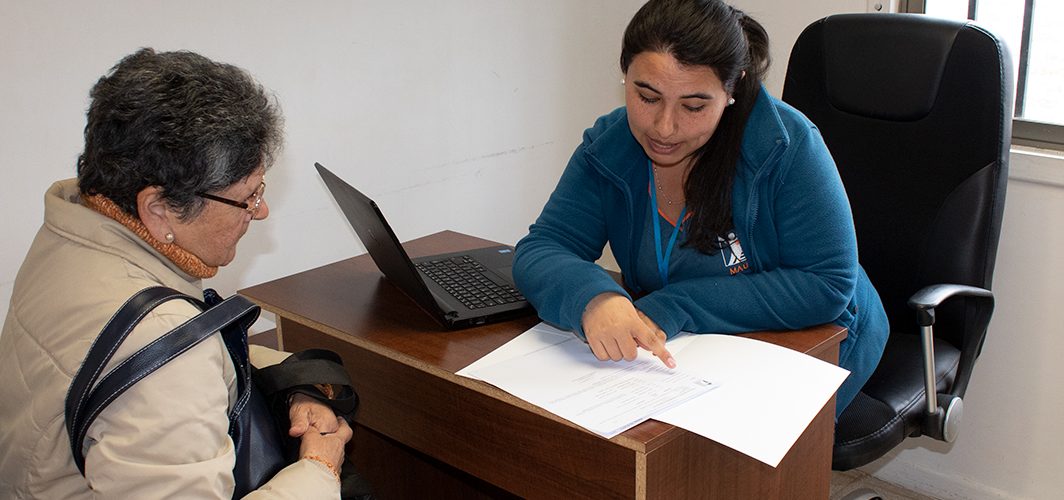MAUCO, CHILE'S FIRST POPULATION COHORT, COVID19 SURVEILLANCE AND STUDY IN CHILE WILL BE INCLUDED

Catterina Ferreccio, epidemiologist and project director of the Maule MAUCO population cohort - the ACCDIS Advanced Chronic Diseases Center, together with his research team from the Pontifical Catholic University of Chile, University of Chile and Universidad Católica del Maule, incorporate in their population study, started in 2014, monitoring the COVID-19 epidemic. The proposal was awarded among the 63 initiatives funded by the National Research and Development Agency (ANID) for the execution of research on COVID-19.
The proposal, called COVID-19 Sentinel Center, is the name of the study funded by the Ministry of Science, Technology, Knowledge and Research, through ANID. This initiative joins the MAUCO project, who for 6 years has been investigating the factors that influence or prevent the development of chronic diseases in the Molina community and the Region.
"We will take advantage of the research infrastructure we already have, where we have followed 9500 participants between the ages of 38 and 74, and to those who regularly conduct health screenings and various psychosocial assessments, Cognitive, Environmental, Genetic, microbiome, use of agrochemicals and antibiotic resistance and where, we also have a biobank for storing biological samples. On this infrastructure we will incorporate the surveillance of COVID-19 and other infectious diseases" explained Andrea Huidobro, Local Responsible Epidemiologist of the MAUCO study and academic at maule Catholic University, who also added, the COVID-19 Sentinel Center will be implemented in its first year to detect early entry of the new infectious agent into the population and characterize the virus, the virus-host duo and the factors that determine the evolution of the clinical picture. "The idea is that the protocols for studying and monitoring the epidemic, stay in the region for detection, study and control of future outbreaks," he noted.
The COVID-19 Centinela Center project, has the collaboration of the Municipality of Molina, Santa Rosa de Molina Hospital and the San Juan de Dios hospitals in Curicó and Dr.. César Garavagno Burotto of Talca and with the support of the Maule Health Service.
Among the objectives of the research team, partnerships with the World Health Organization and the study are expected to be incorporated into the international pandemic monitoring network, taking into account that real-time information on SARS-VOC2 activity will be collected in the population, genetic characterization and changes of the circulating virus, magnitude of outpatient disease, hospitalized and their mortality.
"What we will develop is research-action, we are already part of the traceability system, COVID-19 testing and isolation at Molina. We share with the local health system our results, we discuss its implications and offer a permanent consultancy on any health issues they raise. MAUCO's health team, is part of the community. The population of Molina, will be the first beneficiary by our academic activity but we will also meet the country that is funded by this initiative."
SECOND RESULTS OF THE POPULATION FOLLOW-UP OF THE COVID-19 EPIDEMIC IN CHILE
In parallel, since April, the MAUCO study's research team has launched an accompanying campaign to its participants, which includes conducting an internationally used survey tailored to our reality, to assess perception, COVID-19's information and experiences in Chile. "In addition, addresses the appreciation of participants' risk during the epidemic in Chile, Inquiry into its economic impact, providing basic supplies, psychological aspects, contact situations with cases, symptoms and experience in the adoption of social isolation measures", explained the research team.
Among the positive results of the second survey observed in may, there was a significant increase in the ease of implementing the recommended health measures, for example: use of alcohol gel and mask, difficulties for work from home and avoid social gatherings and meeting between children.
Unlike the first measurement, held in April, much of the population interviewed reported fewer concerns about doubts about the origin of this new disease. On the other hand, although the perception of coronavirus contagion risk increased slightly, decreased people who reported avoiding contact with other individuals to prevent COVID-19.
Regarding the economic impact, the Dra. Huidobro explained that only the 25th,2% of participants said they felt financially damaged in May; nor were there any difficulties in getting basic supplies such as food or toilet paper, during the months evaluated.
During the period evaluated, 98,8% of people did not have a fever, a 96,6% had no shortness of breath and the most common symptom was headache. Regarding the psychological impact, the researcher reported that similar values observed in April are maintained, notably a 33,3% of participants reported feeling depressed due to COVID-19.
The process of gathering information on COVID-19 and its main results of this COVID-19 social and psychological survey and the Sentry Center's progress will be reported from the page www.mauco.org.
